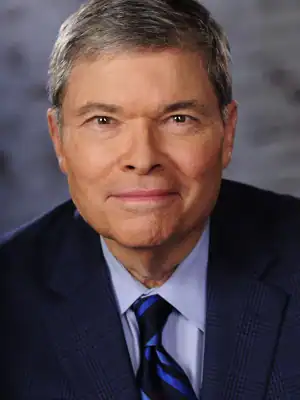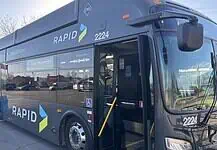OKLAHOMA CITY (Free Press) — President Trump signed the $9 billion rescission package into law Thursday, cutting $1.1 billion in federal funding to the Corporation for Public Broadcasting and triggering an estimated $3.5 million loss for Oklahoma’s public TV and radio stations.
Most of the funding being rescinded comes from foreign aid assistance programs.
Approximately $1.1 billion was previously approved for the Corporation for Public Broadcasting (CPB), which funds NPR and PBS. The loss of that funding could force affiliated local stations, especially in rural areas, to consolidate, restructure their operations, reduce services, or shut down entirely.
More than 70% of CPB funding is directly distributed to more than 1,500 local public and TV stations nationwide.
In a narrow 216-213 vote, the House advanced the rescission bill to the president’s desk on July 18, with unanimous support from Oklahoma’s congressional delegation.
“The United States is on an unsustainable fiscal path with the national debt nearing $37 trillion. This is why I voted for the rescission package, which seeks to codify DODGE’s mission to root out waste, fraud, and abuse,” Congresswoman Bice, one of Oklahoma City’s two representatives, stated in a press release. “I also want to address the funding for the Corporation for Public Broadcasting. This rescission package will not affect emergency alert systems, which are vital for states like Oklahoma.”

Free Press reached out to the office of Congressman Frank Lucas for comment. We did not receive a response by publication time. Lucas represents the south side of Oklahoma City in Congress, which is part of a massive district that includes western Oklahoma to the end of the Panhandle.
One reason GOP lawmakers supported the cuts is their belief that NPR and PBS show a liberal bias and that taxpayer dollars shouldn’t be used to fund politically biased media.
Public broadcasters in Oklahoma and across the nation are now facing difficult decisions about how to sustain their operations, as the CPB provided funding for stations two years in advance to give stations long-term financial stability, support that has now been thrown into question.
At KGOU, an NPR affiliate based in Norman, General Manager Dick Pryor told Free Press the station received a total of $215,000 in its most recent audit—a figure that now represents the estimated loss for the upcoming fiscal year due to the rescission.
“I would say our biggest concern because we’re a public service media station is that if we are unable to through various means, raise enough money to cover the loss and for us to continue to provide the level of service that we’ve provided for decades that the communities in Oklahoma will lose because we may not be able to provide local news, the information, the emergency alerts and the other programs – both local and national, that have become the part of the fabric of America,” Pryor said.

“We don’t want to lose that,” Pryor continued. “But that is something we have to be concerned about: is how we have to operate in the future, and what does that mean for the communities that rely on us.”
Pryor said that to offset the loss, KGOU launched a two-day on-air fundraiser, began cutting expenses, is considering changes to its national programming lineup, and is actively seeking additional sources of revenue.
“It’s uncharted territory, it truly is,” Pryor said. “We have not been down this path before, and we don’t know how much money we’ll be able to gain from various sources, so we’re having to virtually redesign public broadcasting on the fly, in real time, and that’s a challenge.”
Pryor also explained the danger that stations in smaller or rural markets face – where listener revenue and underwriting are limited – may be at risk of shutting down entirely if they can’t replace lost federal funding.
According to the most recent financial reports submitted to CPB, rural stations rely more heavily on CPB funding than their urban counterparts.
“If public media stations serving communities where they don’t derive enough revenue actually to pay the bills [and communities] don’t support them, they may go dark,” Pryor said “And then think of those communities around the country, especially those that may be located in news deserts where there are very few or no other options, those people will clearly lose out on the news and information and the emergency alerts that they needs for public safety and to be educated, informed citizens.”
While Pryor acknowledged the severity of the funding loss, he noted that the station is drawing strength from the strong support of its longtime listeners. Still, he emphasized that the unprecedented situation presents both an immediate financial crisis and a long-term challenge, requiring KGOU to rethink its operations without expecting a return of federal funding.
“I’m optimistic because of the reaction we’ve received from people in our communities. They’re concerned, they’re energized, they’re angry, they want to help,” Pryor said. “That means we have an opportunity here to reinvent the public broadcasting model and potentially create a better, stronger model.”
Brianna Garcia is a freelance journalist covering local politics and culture for Free Press. She has a degree in Journalism from the University of Central Oklahoma.











